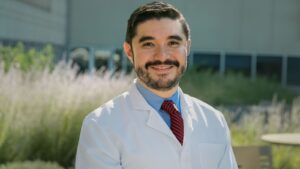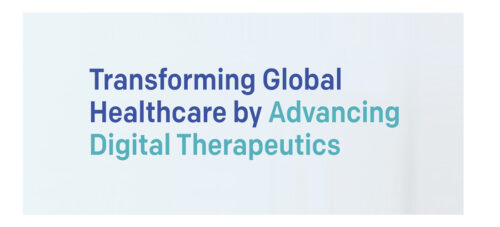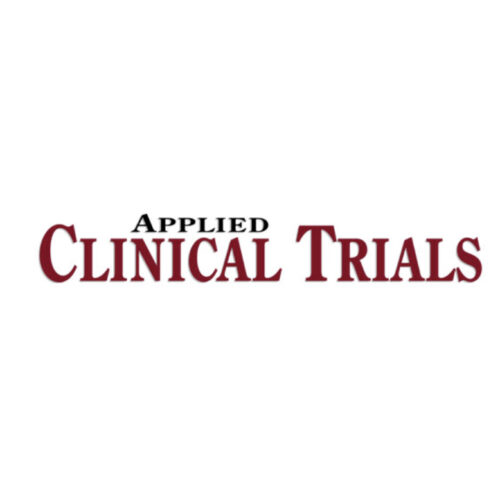October 31, 2022
How new tools are helping companies find and keep cancer patients in clinical studies.
Oncology treatment is improving at a rapid clip, so for people with advanced cancer, a clinical trial may offer new hope when other options have fallen short. But cancer patients still aren’t signing up — a problem that has vexed the industry for years. It’s estimated that fewer than 5% of cancer patients participate in clinical trials, most of them after they have already tried another treatment first.
But trial participation can bring rewards. A study in the Journal of the National Comprehensive Cancer Network found that while only 0.01% of the 12 million patients in the National Cancer Database enrolled in a clinical trial as a first-line treatment option, those that did had better outcomes than non-participants, although they also tended to be younger and healthier than the typical cancer patient.
To help more patients take advantage of these opportunities, organizations are testing new technological tools and focusing on convenience to boost enrollment and retention, as well as diversity.
Barriers to participation
One of the primary reasons cancer patients don’t enroll in clinical trials is perhaps the most obvious — they’re unaware trials exist, said Dr. Arturo Loaiza-Bonilla, co-founder and chief medical officer of Massive Bio, a New York City-based technology company using an AI-driven platform to match oncology patients with clinical trials.

Dr. Arturo Loaiza-Bonilla, co-founder and chief medical officer, Massive Bio Permission granted by Dr. Arturo Loaiza-Bonilla
“Most patients don’t have any idea what their options are,” he said. Even when a patient is interested in participating in research, determining which trial is right for them is often a substantial hurdle. Oncologists often don’t have the time to pore through options to find the right match. It can easily take up to an hour to go through all the criteria and data to search for a trial for one patient, Loaiza-Bonilla said. Some larger practices may have research coordinators to navigate this process, “but in a community practice, you don’t have that luxury, (and) you don’t have that person or expertise,” he said.
Oncology trials typically require patients to meet very restrictive participation parameters, ranging from the genetics of their cancer to the type of treatments they’ve previously undergone.
“Getting into a clinical trial for oncology is extremely challenging because there are so many criteria required,” Loaiza-Bonilla said.
Finding the right match takes an intensive approach, and as a result, many patients miss out.
“It has to be almost like a real-time activation for the patient. And if there’s no system to do it in real time for you, no one’s going to help you,” he said.
There are also emotional challenges and logistical barriers to contend with, said Candice Del Rio, director of clinical operations for Curavit, a virtual CRO that operates decentralized clinical trials. When a patient receives a cancer diagnosis, they are already overwhelmed, which may make them reluctant to take on additional treatments. She saw this firsthand as a nurse working with participants in oncology clinical trials. For patients still processing that initial shock, the idea of participating in research may seem like an additional burden.
“They may say, ‘Look, I just got to the hospital. I’m overwhelmed. I just need some downtime. I don’t know that I want to do anything extra. I just kind of want to stay the course,’” Del Rio said.
Organizations need to take steps to address these barriers if they want to increase enrollment.
Strategies to boost enrollment
Massive Bio is tackling the problem by enlisting tools to help patients more easily find the right trial.
“We founded the company with the goal of making clinical trials accessible for all cancer patients no matter where they are, and using technology at scale to make it work,” said Loaiza-Bonilla. “The space is already crowded by a lot of people saying we’re going to try to solve the problem, but there’s no good engine that’s able to connect the dots, and that’s what we’re aiming for with the company.”
Massive Bio’s AI-driven technology, the Deep Learning Clinical Trial Matching System (DLCTMS), pairs patients with existing trials in the ClinicalTrials.gov national database by combing through medical records to find the most clinically appropriate options based on the specifics of their cancer, including biomarker data. The company’s platform, which has onboarded 100,000 cancer patients to date, also includes other factors in its algorithm, such as the trial location, the patient’s insurance coverage and social determinants of health, Loaiza-Bonilla said. It ranks up to 100 exact and partial matches.
“We’re able to in 17 seconds match you to all the trials available in real time,” he said. Getting this information quickly is crucial because all too often a patient might find out too late that they were a match for a particular trial that has ended enrollment.
The system can also flag potential trials the patient might qualify for down the road if their condition changes, Loaiza-Bonilla said. “We are basically putting together a list of options that you can activate in real time,” he said. “The nice thing about it is that if you are on our platform from the beginning, we can help you across your journey.”
The goal is to help more people — and importantly a more diverse group of people — participate. Increasing broad participation in research has become even more crucial in light of FDA guidance aimed at increasing diversity in clinical trials, Loaiza-Bonilla said.
Retention is crucial
However, simply getting patients into trials isn’t enough — organizations need to retain them, Del Rio said. This is where decentralized trials can excel.

Candice Del Rio, director of clinical operations, Curavit Permission granted by Candice Del Rio
Patients with cancer are already dealing with a lot and need trial options that more easily fit into their lifestyle. For instance, many patients Del Rio has worked with needed to travel from other states or even other countries to participate in a study, making the process difficult and expensive and, in some cases, requiring patients to find temporary housing. Decentralized trials can make the process easier on patients by allowing them to participate from home, requiring fewer site visits.
One reason people running clinical trials hesitate to embrace a remote option because they have less in-person contact with patients, Del Rio said. But remote trials can also offer advantages when it comes to tracking patient health in real time.
“You can get quicker notifications. Sometimes in a clinic, we wouldn’t know that someone was experiencing an adverse event for two weeks until they actually came into the clinic,” Del Rio said.
But remote monitoring allows researchers to quickly identify when something is off and respond quickly. This can also improve retention, she said, because a patient with a new symptom can get immediate help, which might otherwise lead them to abandon the trial.
When using a decentralized model, however, it’s important to incorporate some flexibility in your trial design, Del Rio said. For example, while technology can be more convenient for some trial participants, it may sometime be challenging for others. Providing options can help.
Building for the future
Overall, improving enrollment and retention in oncology trials is crucial.
“Trials are part of the treatment. In a lot of ways, it’s the gold standard because drug developers are constantly trying to find better ways to treat an illness and cause fewer side effects and prolong longevity,” Del Rio said.
While there are many reasons why patients don’t participate in trials, improving enrollment often comes down to two simple factors — improving access and communication.
“If we use [our] tool at scale and reach out to those populations, we can hopefully make studies much more accessible to those populations that otherwise may have not been able to get them,” Loaiza-Bonilla said.










